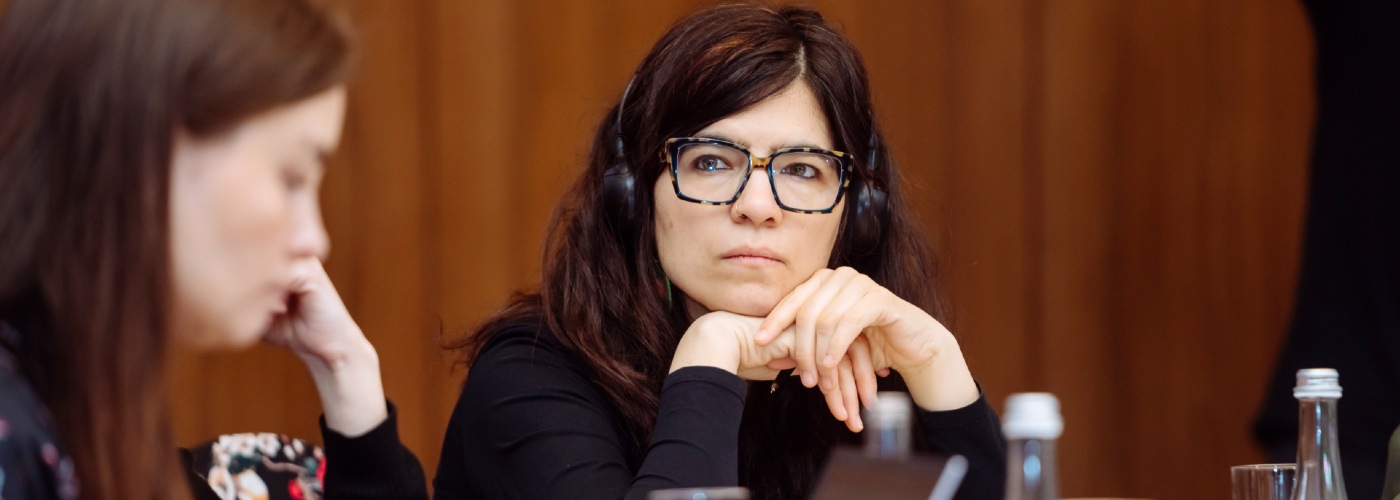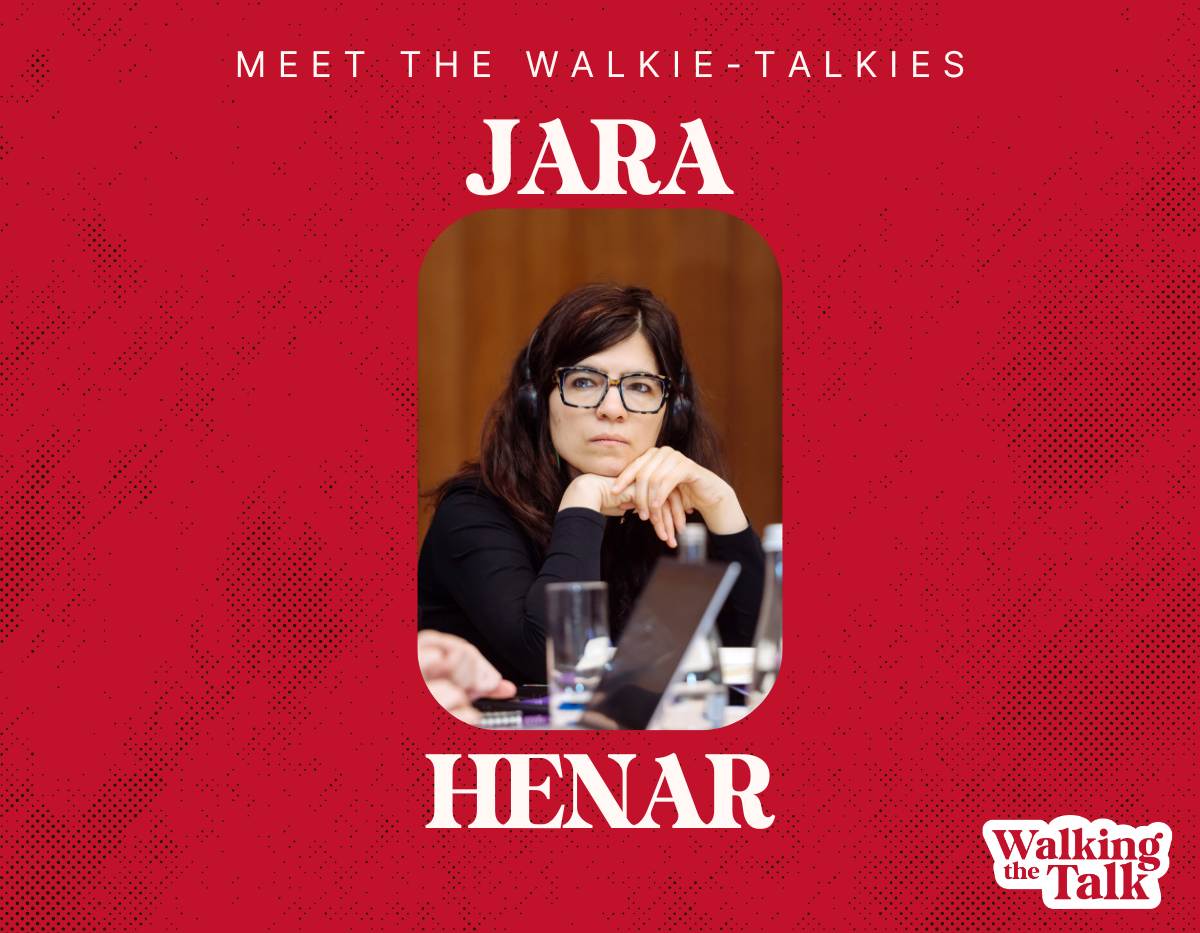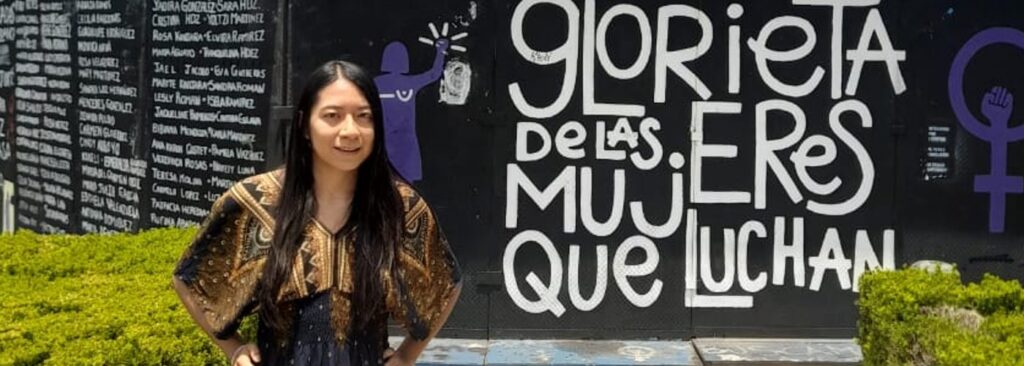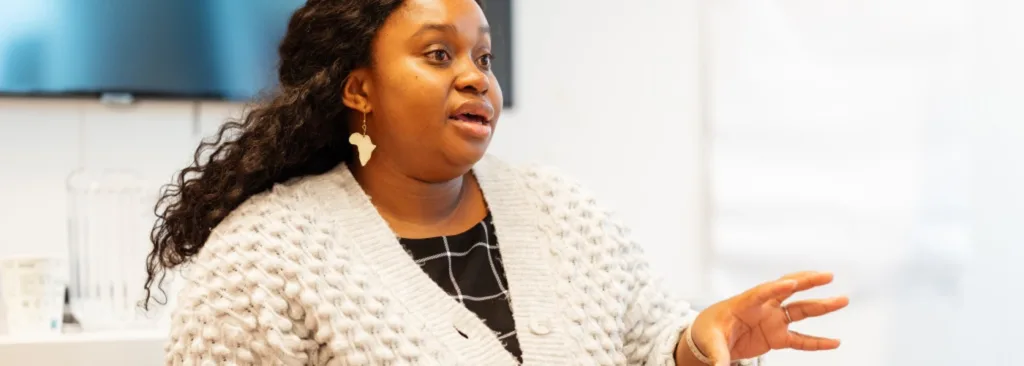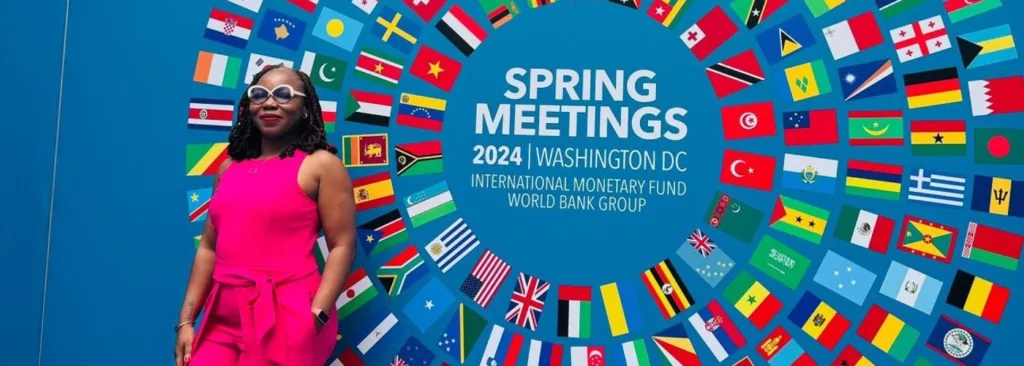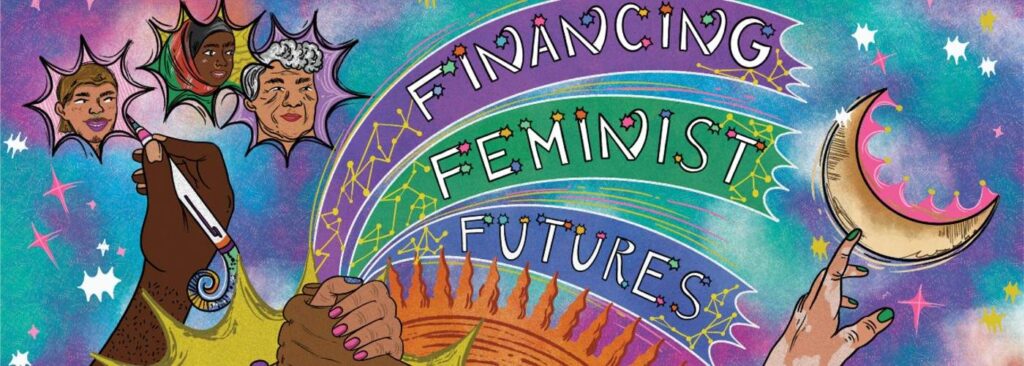The Walking the Talk consortium is proudly working with six exceptional feminists from all over the world – aka our team of ‘Walkie-Talkies’. These experts bring unique perspectives and invaluable experience to our mission of promoting Feminist Foreign policies, practices, and funding in Germany, France, the United Kingdom, the Netherlands, and the European Union.
How would you introduce yourself?
I am Jara, from Barcelona. I have always been working and studying around topics that passionate me, such as women’s rights, and migrant and refugee people rights.
It took me a while to understand that some changes won’t happen in my lifetime, but I now believe that there is still lot of agency and power when deciding what you stand for and what you are ready to keep fighting despite changes not being immediate.
Could you share with us a fun fact or something surprising about you ?
I love riddles and jokes. I can spend hours reading bad jokes or memes and enjoying it immensely. I try to play with words in different languages, but am not always successful…(nevertheless, I keep trying!)
What personal experiences shaped your feminist beliefs? In what way?
I had the privilege to grow up with a feminist mother. I had feminist children’s books with feminist roles to be inspired by, which came together with a particular sensibility towards justice and the fight against inequalities.
Now I am more cautious towards the concept than I used to be when I was younger. I believe that if it is not inclusive, if it is not antiracist, if it is not intersectional, then it is not feminism. I know it is not the same for everyone, so as a white person from the minority world, I am not always comfortable identifying myself as a feminist.
How would you explain Feminist Foreign Policy concept to someone who has never heard of it?
It is a strategy to reverse historically unequal relations between the minority world and the majority world. In order to challenge patriarchy, colonialism and institutional racism, and to center those relations around recognition, reparations, care and rights of individuals and peoples.
Can you remember your first encounter with the FFP approach? What did you think then?
It was through the analysis of the Spanish and EU foreign Migration strategy, looking at how blind these policies are to gender equality, women’s rights and women’s agency.
This leads the way to start considering how a FFP could challenge this, and change a colonial, patriarchal and racist perspective guiding countries’ external action in the minority world.
What does FFP mean in your community?
It means the opportunity for the minority world to repair and amend and move beyond colonial paradigms, putting responsibility and care at the center.
In your opinion, what role can young people play in making a feminist foreign policy successful?
Young people are crucial in this process. Not long ago, I was in a conference organized by of a group of so-called feminist organizations, composed in its majority by middle-aged white women. They were wondering how the feminist movement can include the LGBTQIA+ community but to me it was more of a superficial thought than a real strategic thinking.
It’s not the same everywhere of course, but I brought this because the youth movements and organizations I (myself being a white middle-aged woman) am working with are not organizing seminars about it: they are already doing it, understanding that social cohesion can only be achieved by addressing discrimination towards joint work and cross pollination between movements driven by different agendas.
Besides, they are much more capable to be flexible, to connect local and global aspects of their realities, to engage, mobilize and shake. So, young people are crucial in paving the way towards the foundations of a feminist foreign policy approach, looking both at their internal and external aspects and the coherence needed between them.
If you had a magic wand: what would you change in your country or region?
The lack of acknowledgement towards the role played in past and current colonialism and epistemicide. And the discriminations, in particular institutional and legal racism.
A favorite feminist song ? ♫
I have always been a huge fan of the ’80s, and “Girls just want to have fun” is one of my favorite songs. It’s a song defying patriarchy with an easily understandable language. I love the references to sorority and celebration, and also how the name has been transformed into something very powerful: “Girls just want to have fundamental human rights”!
Another song that I have loved for a while is “Aicha” by Khaled. This song talks about how women’s rights and gender equality are much more precious than any jewel, stone or other privileges.
About the Walkie-Talkies
The “Walkie-Talkies” are feminists with expertise and lived experiences in gender equality policies and practices. They come from diverse backgrounds and regions, bringing intersectional perspectives on issues such as climate justice funding, SRHR, gender-based violence, and feminist technology. They are committed to sharing lessons, driving positive change, and actively participating in strategic activities within the consortium.

